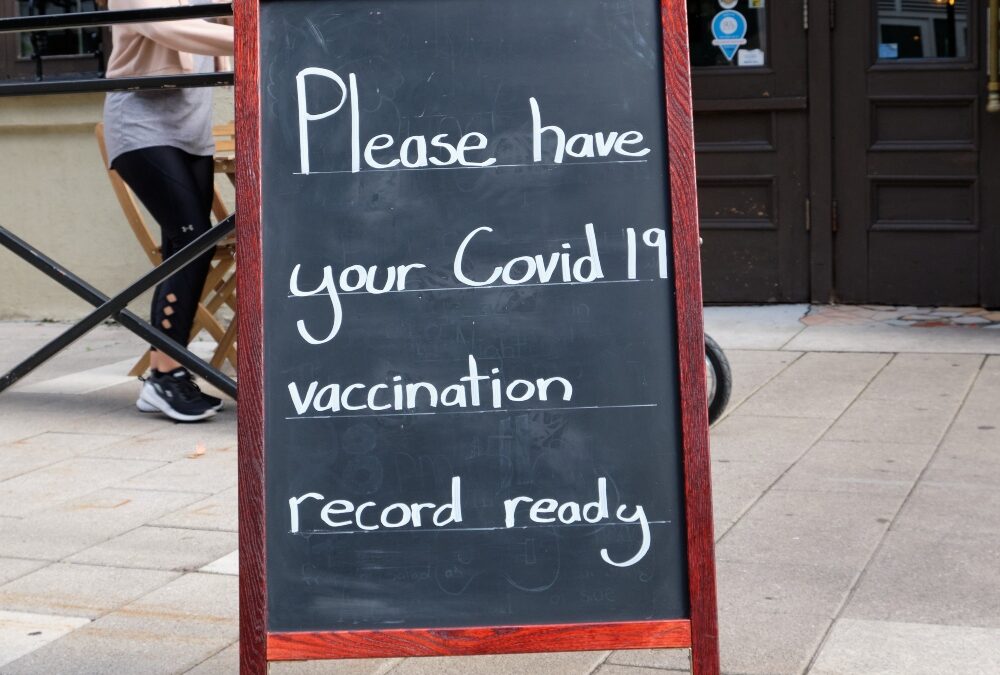With conflicting federal and state directives, employee dissension, and continued confusion over COVID-19 vaccination mandates, employers are finding it difficult to conclude how to proceed with their own company policies and mandates for vaccination status.
Under President Biden’s Path Out of the Pandemic plan, all federal employees will be required to be vaccinated against COVID-19 by November 22nd, and all federal contractors by December 8th. Additionally, on October 12th, OSHA delivered a pending emergency temporary standard (ETS) to the White House that would regulate and mandate private employers with at least 100 employees to require employees get vaccinated or submit to regular COVID-19 testing. This mandate is expected to take effect as soon as the Office of Management and Budget (OMB) reviews and approves it.
With these hard and fast rules soon to be in place, employers are scrambling to write and administer internal policies in preparation of approval to ensure compliance with these laws. In doing so, they may also run into the need to explore reasonable accommodations for workers with certain medical and religious objections to the vaccination.
Confusion abounds and questions remain how employers will be held responsible for managing these mandates, especially in light of competing directives within certain states. Lobbyists, trade and labor unions, retailing associations and trucking companies have been meeting with the OBM in recent weeks to request a delay in the rule due to already devastating staffing shortages. With the holiday season just around the corner, these mandates could further derail supply chains, shipping and manufacturing and hurt businesses due to resignations and turnover of those employees refusing to get vaccinated.
According to CNBC, “The National Retail Federation, the trucking association and the retail leaders group” have asked the White House to delay the mandates to “give businesses 90 days to comply with the mandate” until after the holidays.
Even if the delays are granted, businesses should still understand the OSHA requirements and prepare in advance to avoid possible penalties in the future. It also gives employees the opportunity to know what’s expected of them and the timeline for implementation.
According to the Society for Human Resource Management (SHRM), there are things an employer can do to ready their business for these changes. First and foremost, the employer should determine if they would fall under the guidelines of the OSHA mandate. The current proposal is for employers with 100 or more employees.
Another strategy for planning is to conduct a survey with employees to identify the percentage of employees who are currently unvaccinated and who do not wish to be vaccinated. This information can be used for businesses to prepare for their workforce shortages and future staffing needs.
As a component of the vaccination mandates, weekly testing may be the option an employer must use for those with accommodations. An employer should research various testing labs in the area or other at-home kits and testing options employees may need to use in the event this is needed. The cost of testing is also a consideration, as the ETS doesn’t currently identify if the employer or the employee will bear the cost of the testing.
And finally, employers should consider their current paid time off requirements that may need to be granted to employees under the Biden Pandemic Plan. Time off for vaccinations, for testing, and for medical leave may be required under the ETS, so employers should consider their policies on time off, consult with state paid time off policies, and determine what options may be available to employees when the need arises.
After examining all the details currently available, employers should determine their approach they will take once the law is in place and create a written policy that is clear and straight forward to avoid future conflicts or errors in administration.
In the end, it will be the employee communication that will dictate a successful and easy transition, enabling compliance and limiting confusion with the employee base.
If you have questions about vaccine mandate policies, our HR Consultants are your source of information. Contact us today for help in creating your policies and employee communication plans.

